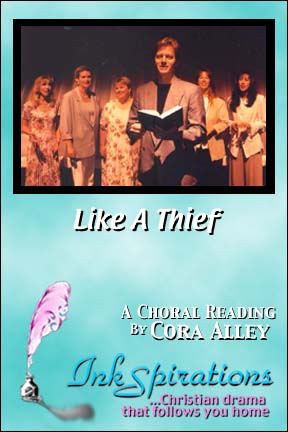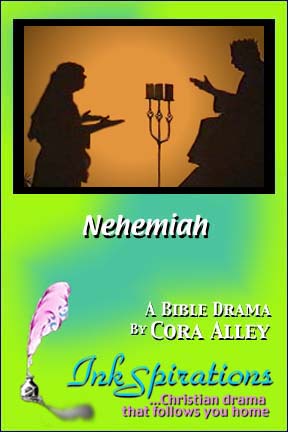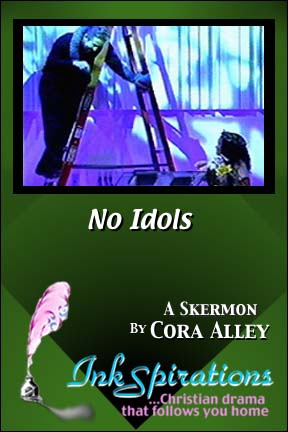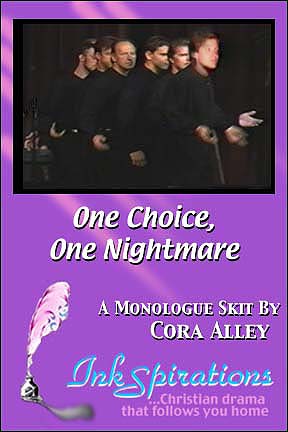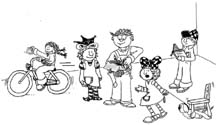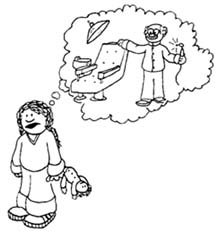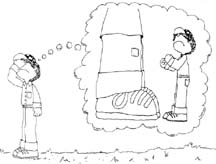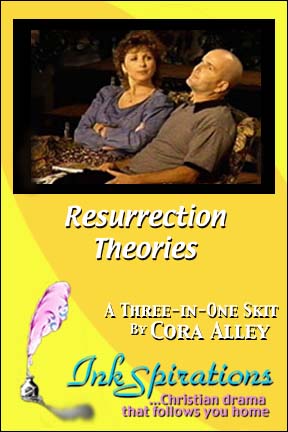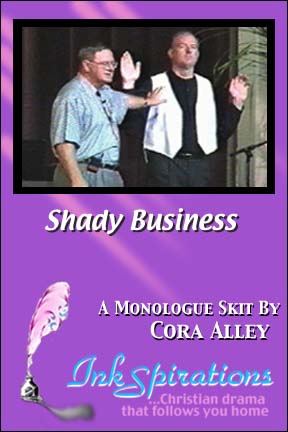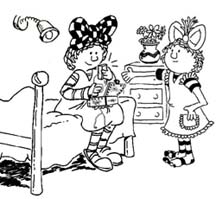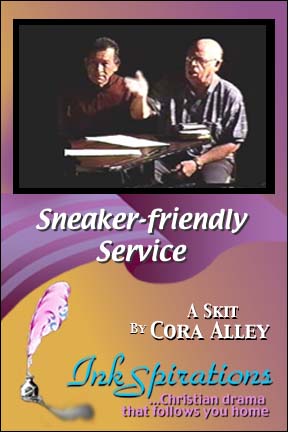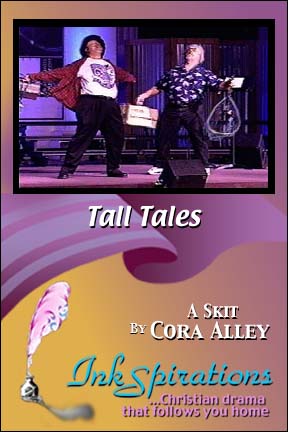-
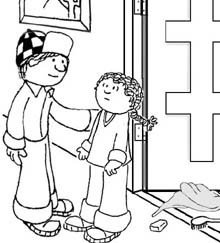 Harvey is very unhappy when his new fishing pole turns out to be broken, but he learns that "joy" means having hope that something wonderful will happen. Tina is disappointed because she can't wear her new dress to the Mother-Daughter Tea with her mom. She learns that "patience" is waiting for things to happen. Pastor Rufus tells the story of Peter's "joy" in the Lord, and the "patience" of the early church as they prayed for Peter's release in Acts 12:5-17.
Harvey is very unhappy when his new fishing pole turns out to be broken, but he learns that "joy" means having hope that something wonderful will happen. Tina is disappointed because she can't wear her new dress to the Mother-Daughter Tea with her mom. She learns that "patience" is waiting for things to happen. Pastor Rufus tells the story of Peter's "joy" in the Lord, and the "patience" of the early church as they prayed for Peter's release in Acts 12:5-17. -
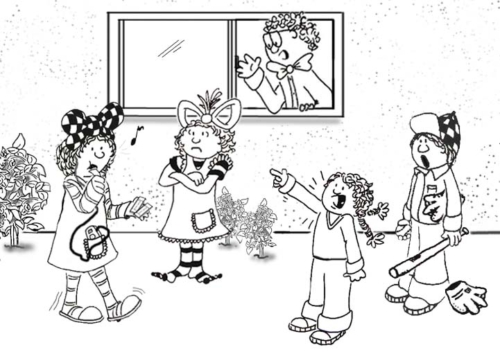 ELECTRONIC Skit Package 5 - Clem ends up friendless and lonely because she wont share her stuff with others. When Rufus tells the parable of Lazarus and the Rich Man, he helps Clem understand that selfish people end up separated from God and from others because they care more about their stuff than they do about the needs of the people around them.
ELECTRONIC Skit Package 5 - Clem ends up friendless and lonely because she wont share her stuff with others. When Rufus tells the parable of Lazarus and the Rich Man, he helps Clem understand that selfish people end up separated from God and from others because they care more about their stuff than they do about the needs of the people around them. -
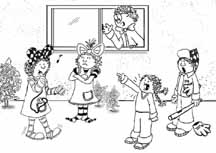 In this ELECTRONIC fifth Skit Package, Clem ends up friendless and lonely because she won’t share her gum with Harvey, or her skates with Zelda, or her iPod with Tina. When Bonnie tells the parable of “Lazarus and the Rich Man,” both she and Rufus help Clem understand that selfish people end up separated from God and from others because they care more about their stuff than they do about the needs of the people around them.
In this ELECTRONIC fifth Skit Package, Clem ends up friendless and lonely because she won’t share her gum with Harvey, or her skates with Zelda, or her iPod with Tina. When Bonnie tells the parable of “Lazarus and the Rich Man,” both she and Rufus help Clem understand that selfish people end up separated from God and from others because they care more about their stuff than they do about the needs of the people around them. -
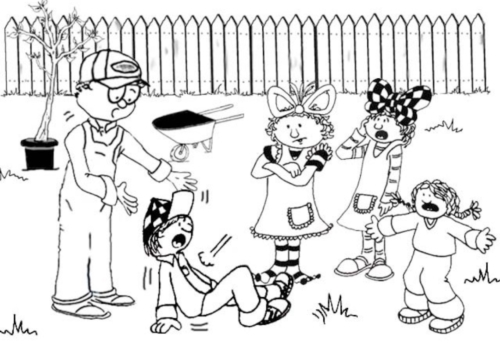 "Love for others" is a powerful "fruit" of the Spirit. The characters learn that "Agape" love is doing what is best for others, even if it is hard for you to do. They all decide to show that kind of love to the people in the homeless shelter. Clem and Harvey give up their valuable things, but Zelda and Tina are selfish; they give old stuff that they don't want anymore.
"Love for others" is a powerful "fruit" of the Spirit. The characters learn that "Agape" love is doing what is best for others, even if it is hard for you to do. They all decide to show that kind of love to the people in the homeless shelter. Clem and Harvey give up their valuable things, but Zelda and Tina are selfish; they give old stuff that they don't want anymore. -
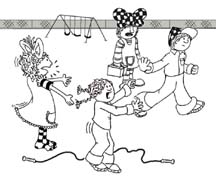 Harvey is a great example Jesus' challenge to love your neighbor as you love yourself. During recess, Harvey and the girls witness the school "Tuffs" beating up on Brian. Harvey goes to Brian's rescue. Pastor Rufus challenges them to change the world, one person at a time, with courtesy, care, and kindness, and he encourages them to do whatever they can to help people in need.
Harvey is a great example Jesus' challenge to love your neighbor as you love yourself. During recess, Harvey and the girls witness the school "Tuffs" beating up on Brian. Harvey goes to Brian's rescue. Pastor Rufus challenges them to change the world, one person at a time, with courtesy, care, and kindness, and he encourages them to do whatever they can to help people in need. -
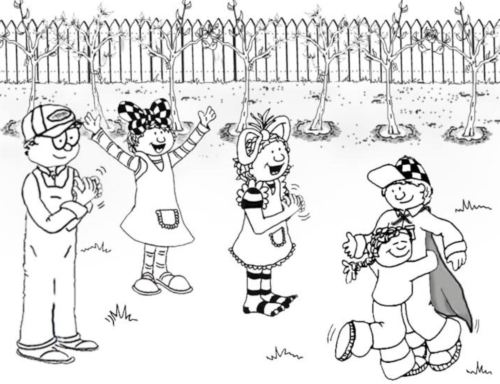 Peace and kindness are two powerful "fruit" of the Holy Spirit. Tina gives Harvey an "Action Hero" cape, and calls him "Spirit Boy." Harvey's act of kindness came after Pastor Rufus told them the story of Paul and Silas in Acts 16: 23-34. Harvey was inspired to show his love to Tina in a powerful way.
Peace and kindness are two powerful "fruit" of the Holy Spirit. Tina gives Harvey an "Action Hero" cape, and calls him "Spirit Boy." Harvey's act of kindness came after Pastor Rufus told them the story of Paul and Silas in Acts 16: 23-34. Harvey was inspired to show his love to Tina in a powerful way. -
 Problems with brothers and sisters happens often between Harvey and Tina. Pastor Rufus challenges them to ask God to help them get the fire of anger with their brothers and sisters "WET" by doing good when they have been treated badly, and setting a good example of what it means to have a new life in Christ.
Problems with brothers and sisters happens often between Harvey and Tina. Pastor Rufus challenges them to ask God to help them get the fire of anger with their brothers and sisters "WET" by doing good when they have been treated badly, and setting a good example of what it means to have a new life in Christ. -
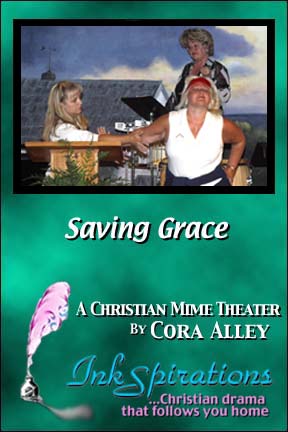 This Christian Mime Theater skit paints a vivid picture of those who reject God's grace, and their misery in trying to make the Christian journey, and those who accept the help of His grace, and walk in his strength. This makes an excellent sermon illustration, encouraging believers to humble themselves before God.
This Christian Mime Theater skit paints a vivid picture of those who reject God's grace, and their misery in trying to make the Christian journey, and those who accept the help of His grace, and walk in his strength. This makes an excellent sermon illustration, encouraging believers to humble themselves before God. -
 These four "Collected Skits" are on the theme of fruitful Christian living: stewardship, holiness, love, and hope. Together, these skits combine to show four areas of life that God intends to govern, as well as, bless when we submit and obey His commands. This is excellent for a sermon on the Christian life.
These four "Collected Skits" are on the theme of fruitful Christian living: stewardship, holiness, love, and hope. Together, these skits combine to show four areas of life that God intends to govern, as well as, bless when we submit and obey His commands. This is excellent for a sermon on the Christian life.



